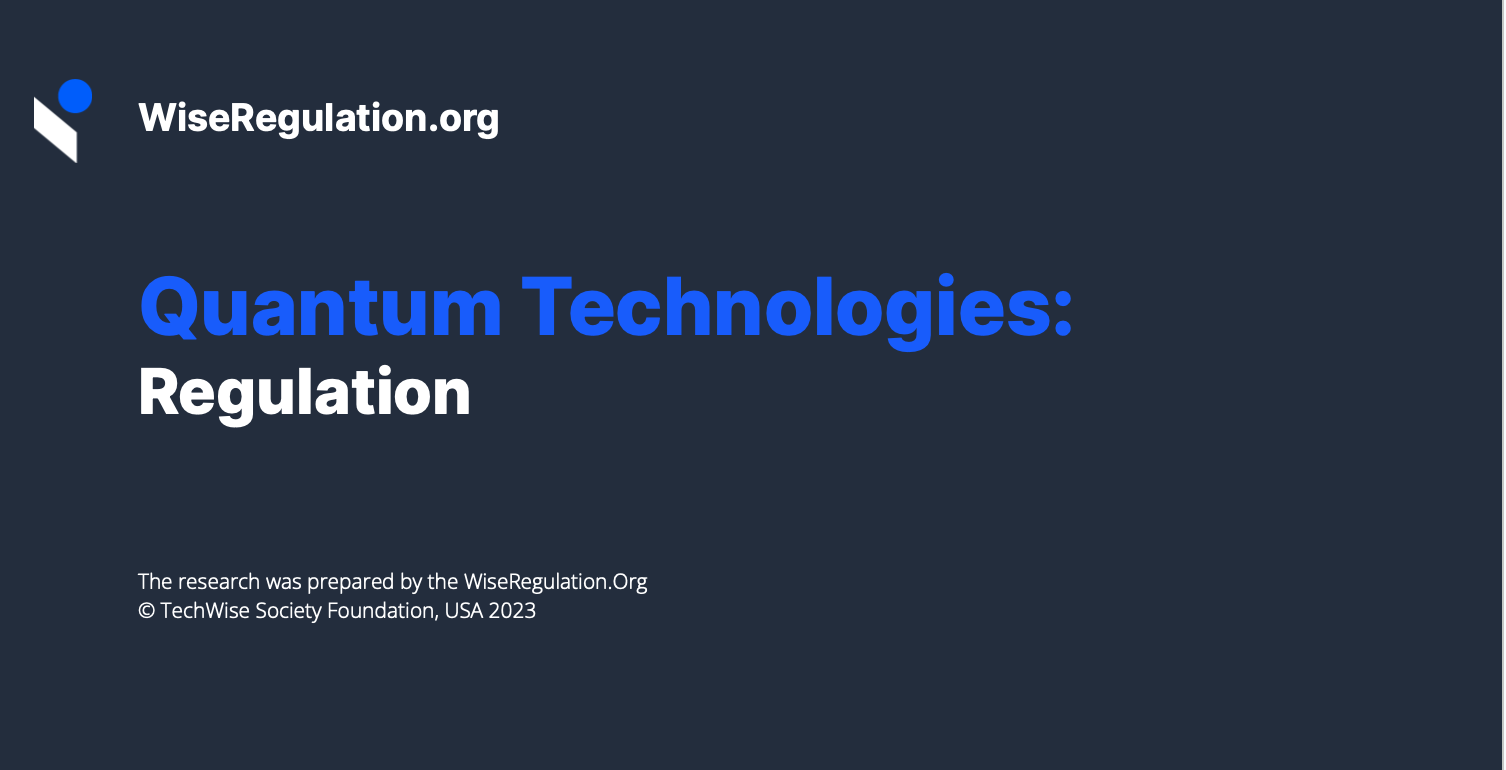Quantum Technologies: Regulation
14. 11. 2023

Over the next few years, the exponential growth of quantum technologies will enable calculations that are currently beyond the reach of the most powerful supercomputers. Quantum technology possesses the capability to discern optimal solutions from a multitude of choices when dealing with intricate problems like logistics, planning, and supply chain management.
Our researchers investigated the situation with the regulation and use of quantum technologies. In this article, we first explain what quantum technology entails. Next, we discuss areas of application, including quantum computing, quantum sensing and quantum communication. We will cover also the potential impact of quantum computing on cybersecurity. We then focus on the possibility of using the existing legal framework, and consider standardization initiatives as well as specific regulation of this transformative technology.
The inevitability of quantum progress requires a holistic approach to the regulation of the application of quantum technology, which considers the interests of all interested parties in society with the introduction of such a flexible legal system that is able to adapt to equally useful and harmful technology, the pace and directions of which are difficult to predict.
In this summary, we want to share some key insights and takeouts
1. Risks allocated with quantum cryptography: A major threat to the progress of large-scale quantum implementation is related to cybersecurity, as quantum computers will eventually become powerful enough to break traditional asymmetric cryptographic techniques. Once practical quantum computers become available, all public-key algorithms and related protocols will be vulnerable to criminals, competitors, and other adversaries. It’s important to start planning for replacing hardware, software, and services that use public key algorithms now so that sensitive digital information is protected against future attacks.
2. “Harvest today, decrypt later”: There is already uncontrolled collection of financial, personal, and other sensitive digital data, which is also a risk that must be taken into account when regulating quantum technologies. This is called “harvest today, decrypt later”. With the creation of a powerful quantum computer, the sensitive data that is already collected and stored today can be decrypted for illegal use.
3. The potential impact of quantum technology on AI: Quantum computing’s proficiency in handling intricate problem-solving tasks that encompass numerous variables presents a significant opportunity for driving the development of generative AI systems. Like the advantages seen in quantum computing, generative AI also brings substantial benefits. However, there’s a parallel concern that AI could enable the spread of disinformation, exemplified by the creation of highly convincing deepfakes.
4. Regulation of quantum computing must be at a global scale: An approach to regulate quantum technology on an individual country basis wouldn’t effectively mitigate the associated risks, as other nations might not follow the same regulatory standards. Quantum technology operates within a “winner takes all” dynamic, implying that government regulations could potentially hinder progress. A comparable trend is evident in the current regulation of emerging AI technologies like ChatGPT and image recognition; countries with minimal or no regulatory restrictions are making more rapid advancements compared to those with stringent regulations in place.
5. Limitations on export of hardware: The implementation of export controls is becoming more valuable to prevent adversaries from obtaining critical technology, thereby enhancing national security and safeguarding economic interests.
According to the results of our research, we can mention that wise regulation of quantum technology is needed to prepare for possible negative consequences when quantum technology crosses the threshold of the capabilities of modern computers and takes cryptography to a new level in the physical world, as it becomes a public safety concern. Any regulatory framework should be designed to promote accountability, assignability, and discoverability. Specific areas of application of quantum technologies require separate and distinct regulation from other industries, such as AI and telecommunications.
As the existing system of intellectual property protection is not up to the challenges of the development of quantum technologies, it is time for governments, research institutions and other market participants to prepare regulations that strike the right balance between protecting human interests and encouraging healthy competition to create sustainable incentives for sustainable innovation.
You can find full research in this presentation (LINK)
Best regards,
Vitaliy Goncharuk
WiseRegulation.org